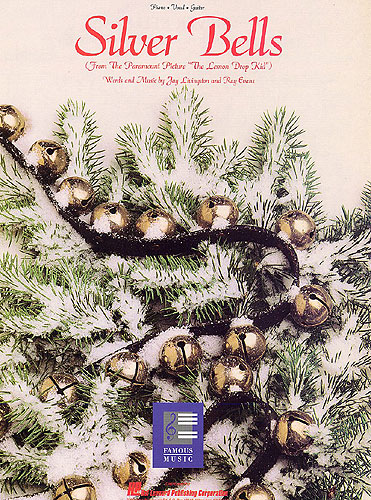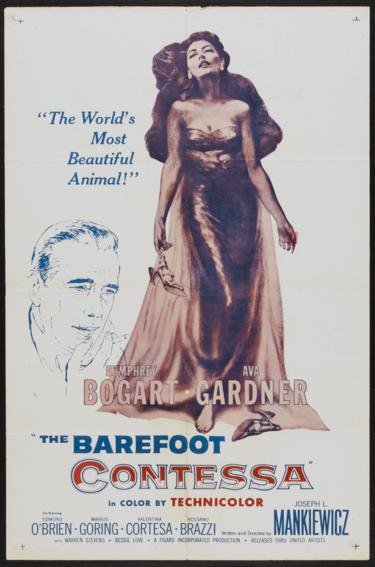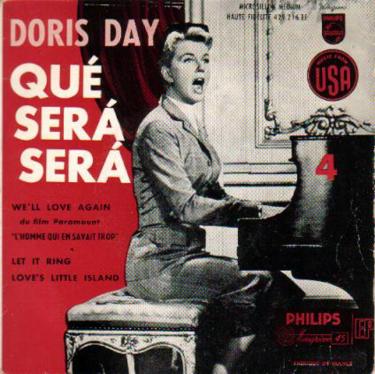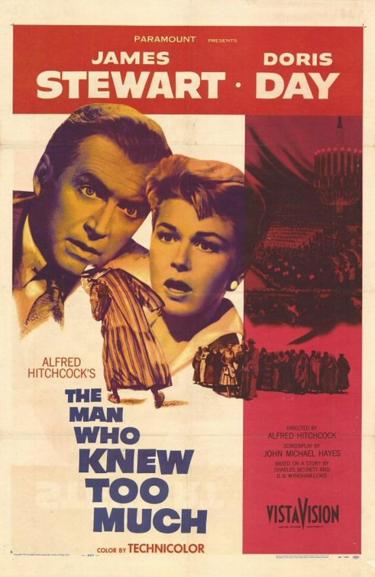What Were the Strange Series of Events That Led to “Whatever Will Be, Will Be (Que Sera, Sera)” Winning an Oscar?
Here is the latest in a series of examinations into urban legends about movies and whether they are true or false. Click here to view an archive of the movie urban legends featured so far.
MUSIC URBAN LEGEND: An interesting confluence of events had to occur on the road to “Whatever Will Be, Will Be (Que Sera, Sera)” winning an Academy Award for Best Original Song (including a title change).
Alfred Hitchcock had a problem when it came to the casting of his latest film, The Man Who Knew Too Much.
He wanted the film to star Jimmy Stewart, but Stewart’s agent told Hitchcock that Stewart would only do the film if Hitchcock agreed to take another of their clientsr, Doris Day, as the female lead (presumably to help promote Day as a dramatic actress to go with her fame as a singer and comedic actress).
Not only that, but part of the MCA deal insisted that if Day were to appear in the film and sang a song, Hitchcock would to hire her songwriters, Jay Livingston and Ray Evans, as well. And upon hearing that Day was possibly going to be in the film, Paramount Pictures insisted that yes, if she was going to be in the film, she would have to sing a song.
The character in the film WAS a singer, so Hitchcock was not all together displeased at this offer (while he was not at first pleased with the idea of hiring Day, he later was very complimentary of her acting skills), but first, he wanted to hear what kind of song Livingston and Evans were going to write. If they could nail the specific type of tune that he wanted, he would be okay with the whole deal. He specifically wanted them to write a song that sounded foreign and could be sung to a little boy.
Livingston and Evan were already very notable songwriters, at the time. I mean, the guys wrote “Silver Bells,” for crying out loud!

And they had already won two Academy Awards for Best Song, including “Mona Lisa,” which was a major hit for Nat King Cole in 1950.

So forcing them to practically audition was not an experience they had had for quite some time.
However, the duo were up to the task.
Interestingly enough, Livingston had already jotted down a foreign-sounding idea for a song soon before their meeting with Hitchcock.

While seeing the film, Barefoot Contessa, Livingston noted a scene where Ava Gardner’s character is taken to the ancestral home of an Italian character, who shows them the family motto (engraved on the castle wall), “che sera, sera,” which she is told means “whatever will be, will be.”
Livingston thought that that sounded great, so he jotted it down while still in the movie theater.
So when Hitchcock told them he wanted a foreign-sounding song (since Jimmy Stewart’s character in the film is a well-traveled man), they had the song name in their files and quickly whipped up “Que Sera, Sera (Whatever Will Be, Will Be).”
They switched from the Italian “che” to the Spanish “que” because they figured that there are more countries that speak Spanish than speak Italian.
Hitchcock loved the song, although it actually took some cajoling to get Day to agree to do the song, as she felt it was too childish, but she eventually relented.
Of course, it became her biggest hit (she would sing the song in two more films and had it as the theme song to her 1960s TV series)…

The song was featured prominently in the film, which was a big hit, commercially and critically…

One last thing had to happen, though.
The song’s original title was “Que Sera, Sera (Whatever Will Be, Will Be),” but there was a worry that the song title would put off Academy voters (as no foreign language song had ever won the Oscar at the time – the first foreign song to win was actually four years later, and that was the ONLY foreign language song until 2004!), so the producers insisted that the song be listed in the film as “Whatever Will Be, Will Be (Que Sera, Sera).”
And that’s how the song was released, and that’s the name the song won the Oscar under.
By the by, while Livingston did not know it, Che Sera, Sera was an actual phrase before being used in the Barefoot Contessa. Christopher Marlowe used it in his famous play Doctos Faustus in the late 1500s – “Che sera, sera / What will be, shall be”
The term was also used as the heraldic motto for the Dukes of Bedford.
That’s a lot of usage out of one little phrase!
The legend is…
STATUS: True
Feel free (heck, I implore you!) to write in with your suggestions for future installments! My e-mail address is bcronin@legendsrevealed.com.






An interesting story to be sure, but this does not seem to relate an urban legend so much as a “Did you know?” concept. Still I love these features.